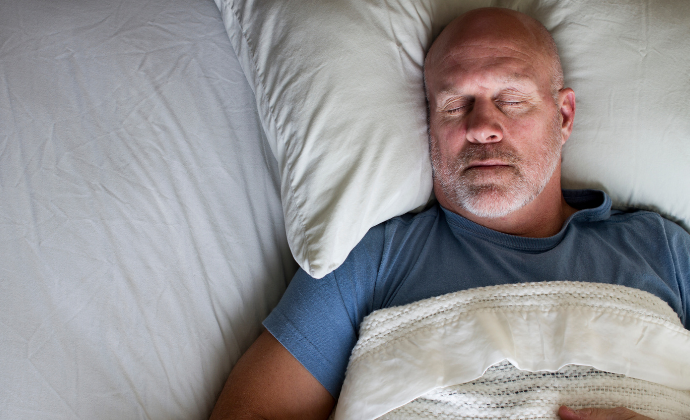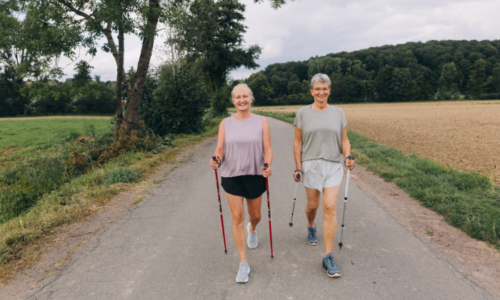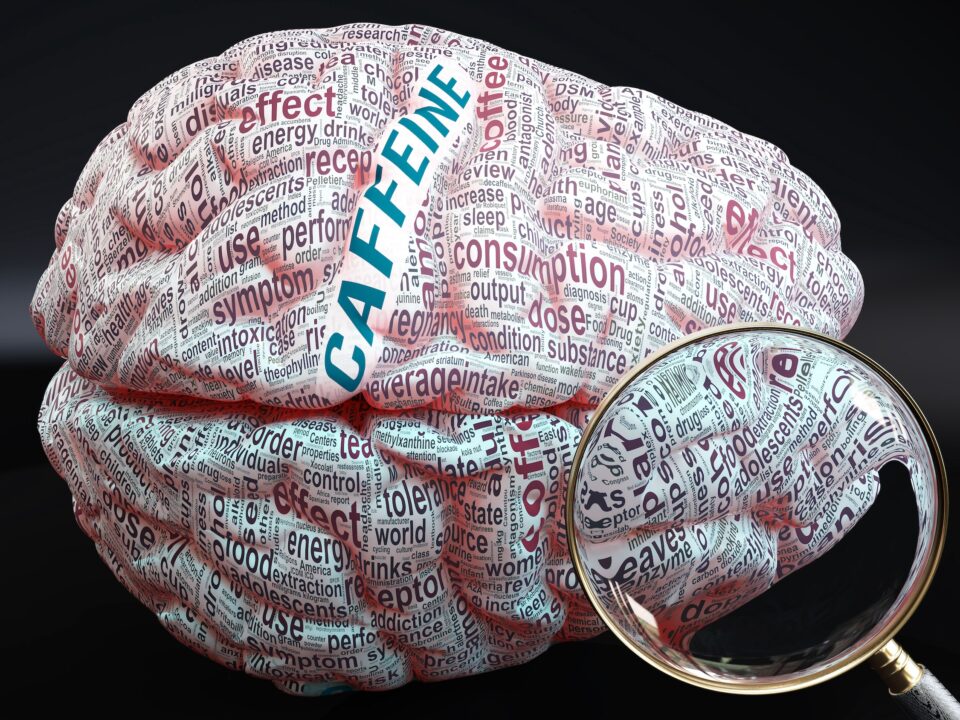The dictionary definition of sleep is a naturally recurring condition of rest, in which there is unconsciousness with the nervous system inactive and muscles relaxed.
A good night’s sleep is vital for physical, mental, and emotional wellbeing. It is the time when the body repairs and rebuilds itself.
Normal sleep patterns are characterised by a regular bedtime and a similar amount of sleep each night.
Your sleep pattern is set by your body clock. This follows the 24-hour clock and is called the circadian rhythm. Circadian rhythms are cycles that are part of the body’s internal clock running in the background to carry out essential functions and processes.
During the sleep/wake cycle, different systems of the body follow circadian rhythms that are synchronized with a master clock in the brain. This master clock is directly influenced by environmental cues, especially light – which is why circadian rhythms are tied to the cycle of day and night.
When properly aligned, our circadian rhythm can promote consistent and restorative sleep. But when this rhythm is thrown off, it can create significant sleeping problems.
Research is also revealing that circadian rhythms play an integral role in diverse aspects of physical and mental health.
Light exposure causes our master clock to send signals that promote alertness and help keep us awake and active. As night falls, the master clock initiates the production of melatonin, which is a hormone to promote sleep. It then keeps transmitting that signal to help us keep stay asleep through the night
This cycle then gives the body opportunity to have a restorative rest period ready for increased daytime activity.
Sleep disorders are some of the most disabling of non-motor Parkinson’s symptoms.
When you are living with Parkinson’s, sleep can become disturbed – and this disturbance can even predate the diagnosis.
Sleep disturbance can be challenging for both the person living with Parkinson’s and their partner. It can lead to fatigue and impacts on cognition and can result in injury, all of which reduce the quality of life.
Sleep plays a major role in memory consolidation and thus impacts on cognition. Long term sleep problems are thought to play a role in the development of neurodegenerative conditions.
Sleep problems increase mood disorders, cognitive decline, and dementia.
Sleep disturbance can decrease reaction time, reduce fine motor skills, and increase impulsivity which makes the Parkinson’s symptoms worse.
Sleep disturbance can be divided into three stages.
- Early sleep stage, which can be caused by discomfort and or anxiety.
- Mid-sleep stage insomnia can be caused by nighttime urination and sleep apnea.
- The third stage is early awakening and can be due to depression or mood disorder.
The symptoms of Parkinson’s really impact on sleep. These symptoms include tremor, rigidity, dyskinesia, depression, nighttime urination, pain, dystonia, breathing issues, REM sleep disorder, and restless leg syndrome.
There may also be other underlying causes of sleep problems which may be unrelated to Parkinson’s and these need to be investigated.
Common complaints about sleep from people with Parkinson’s are:
- Medications are not lasting the full time – a that is ‘wearing off’.
- A difficulty getting in and out of bed.
- Difficulty turning over in bed.
- Need to get up to the bathroom overnight – sometimes several times.
- Dystonia or prolonged muscle cramping.
- Anxiety and depression.
- Fluctuating blood pressure.
- Increased daytime sleepiness.
- Restless legs.
- Sleep apnea.
- REM sleep disorder.
- Vivid dreams.
Sleep issues should always be discussed with your neurologist. A medication review may be able to improve the symptoms and manage things better to improve sleep, which then impacts positively on the rest of your day.
REM Sleep Disorder or Dream Enhancement Disorder is common in people with Parkinson’s and can also be an early sign of Parkinson’s before other symptoms develop.
It occurs in the dreaming phase of sleep. Normally when people dream, their muscles are paralyzed; only the eyes and the tiny hammer, anvil and stirrup bones in your ear canal are able to move during sleep.
Due to the changes in the brain that Parkinson’s causes, the muscles are not paralyzed during the REM sleep phase – allowing vigorous movement of arms and legs, possibly injuring their partner.
People can act out a violent dream and may or may not be able to remember this later.
People experiencing REM sleep disorder need to consider safety measures for both themselves and their partner – and put in place some interventions to reduce the risk of injury to themselves of their partners.
These measures may include:
- Clearing the area around the bed
- Making sure there are no nearby no sharp edges, glass, or anything that can be broken or knocked
- Using a large pillow barrier between them and their partner.
- Continuing to sleep in the same room but in single beds.
- Lowering the bed to reduce the risk of injury if you fall out – which sometimes people do.
People living with Parkinson’s should also be checked for issues with sleep apnea. Alcohol should also be avoided before bed.
Another way to manage this could be also to be making sure that you’re giving good information to your neurologist and your GP so they can make some informed decisions about whether melatonin – which is very safe medication – could be used to try and reduce that dream disorder.
Also, clonazepam is also used to manage the REM sleep disorder by trying to reduce that dream problem. However, it has side effects which can impact your balance and increase daytime sleepiness.
Restless Leg Syndrome is the overwhelming need to move your legs and is usually worse at night, having a major impact on your sleep pattern.
Restless Leg Syndrome can occur when nerve cells are damaged, reducing the amount of dopamine produced. This then causes those muscles to spasm and involuntary leg movements result.
Prior to any treatment being commenced, a check should be made on the lower leg circulation. There may be peripheral neuropathy and also iron deficiency can have an impact on your legs as well.
Treatment for Restless Leg Syndrome includes treating those underlying causes or ruling them out – and then sometimes medications such as dopamine agonists, codeine and gabapentin can be used under medical supervision.
These medications can also have the side effect of excessive daytime sleepiness, so sometimes it’s a tradeoff.
Sleep hygiene – things that can help to improve your sleep – is important when living with Parkinson’s. Make the things in this list part of your routine:
- Exercise regularly.
- Manage pain issues with medication and hot packs, repositioning, and making sure you’re comfortable.
- Avoid large meals in the evening.
- Get enough sunlight to promote a healthy circadian rhythm.
- Make a plan for tomorrow so you don’t lie awake thinking or worrying about the next day.
- In the early evening, give yourself time to relax so you don’t have things rolling around in your mind when you’re getting into bed.
- Relax before you go to bed – try reading, music or whatever chills you out before you get into bed.
- Avoid heavy exercise before bed.
- Ensure that your bedroom is a calm and comfortable place. It should be used for sleeping and intimacy only.
- Your room needs to be a comfortable temperature because people living with Parkinson’s have major issues controlling their temperature – hot or cold.
- Go to bed when feeling sleepy and reduce daytime napping. It’s very easy to feel fatigued when you are not getting a good night’s sleep and then fall asleep in a chair. It’s a better idea to have a short afternoon nap and then get back up.
- Reduce noise and light in the bedroom – including digital clocks, cell phones and computers.
- Avoiding using your computer or cell phone immediately before bed.
- Avoid caffeine before bed.
- Avoid alcohol before bed, as well as smoking and consuming illicit drugs.
- Reduce the time when in bed when you’re not actually asleep. If you wake up, consider getting up, taking a break, doing some of the things that relax you and then going back to bed and trying to get to sleep again.
- Set an alarm clock – not the digital type – so you can relax because you know you will wake up at whatever time you need the next morning.
- Avoid sleeping with pets. They can be very disturbing to people overnight.
Sleep apnea is a condition where a person momentarily stops breathing whilst asleep. This causes them to wake, take a few breaths and then go back to sleep again.
They don’t usually have the memory of this happening because it’s brief, but it disturbs their sleep.
The symptoms of sleep apnea include loud snoring, choking noises while asleep, and that prolonged intake of breath. This also ends up being causing excessive daytime sleepiness.
Treatments for sleep apnea include weight loss, use of a Continuous Positive Airway Pressure (CPAP) machine, and a review of the medication regime.









